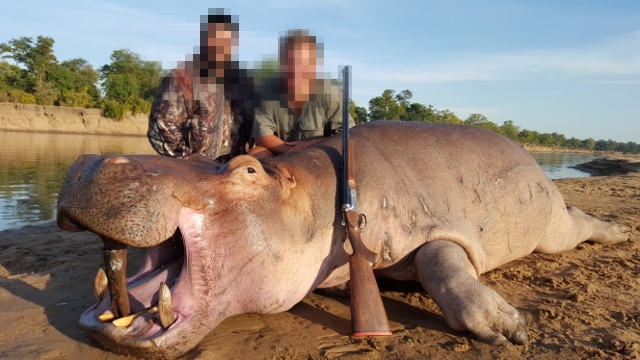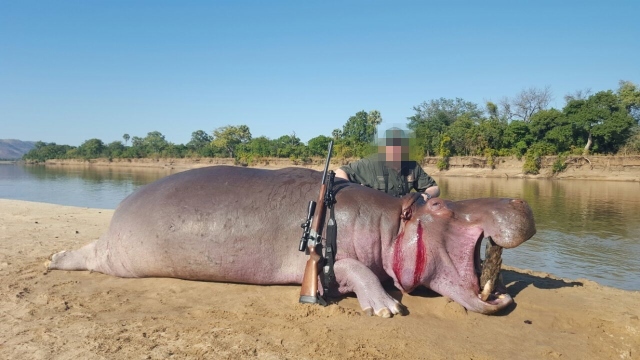
Sourced from third-party sites: Born Free Foundation and CAJ News
Conservationists are up in arms over the announcement by Zambian authorities that the 2016 decision to suspend the culling of 2,000 hippos has been overturned. The plan to reduce the hippo population in the Luangwa Valley over the next five years has been justified by Zambia’s Department of National Parks and Wildlife (DNPW), arguing that the exercise is a wildlife management tool aimed at preventing anthrax outbreaks among animals due to high populations of hippo.
The cull is being promoted to trophy hunters by the South African hunting outfitter Umlilo Safaris as a ‘hippo management hunt‘.
Born Free, the conservationist organisation that led the efforts to stop the slaughter in 2016, is calling for the authorities to urgently reconsider and abort the agreement that only benefits private safari hunting companies and trophy hunters.

“Our sources reveal that the government has moved swiftly to reinstate the cull, perhaps hoping this would go unnoticed,” said Born Free President, Will Travers. “They are, apparently, using the same flawed rational for the slaughter as last time.”
He said the authorities had neither provided evidence demonstrating that there is an overpopulation of hippos in the Luangwa River nor proof that such a hippo cull of healthy animals would prevent a future outbreak of anthrax.
Born Free is now appealing to national and international wildlife conservation organisations in calling on President Edgar Lungu to “personally intervene and call a permanent halt to this damaging and distressing plan, with immediate effect”.
Wild hippo numbers across Africa are under increasingly pressure with a maximum estimate of just 130,000 animals. In addition, as efforts increase to end the trade in elephant ivory, hippos are being increasingly targeted for their ivory as a replacement. According to Born Free, the latest data confirms that in the decade to 2016, more than 6,000 hippo teeth, 2,048 hippo tusks and a further 1,183 hippo ‘trophies’ were exported to EU Member States alongside thousands of other ‘parts and products’.
To comment on this story: Login (or sign up) to our app here - it's a troll-free safe place 🙂.![]()






